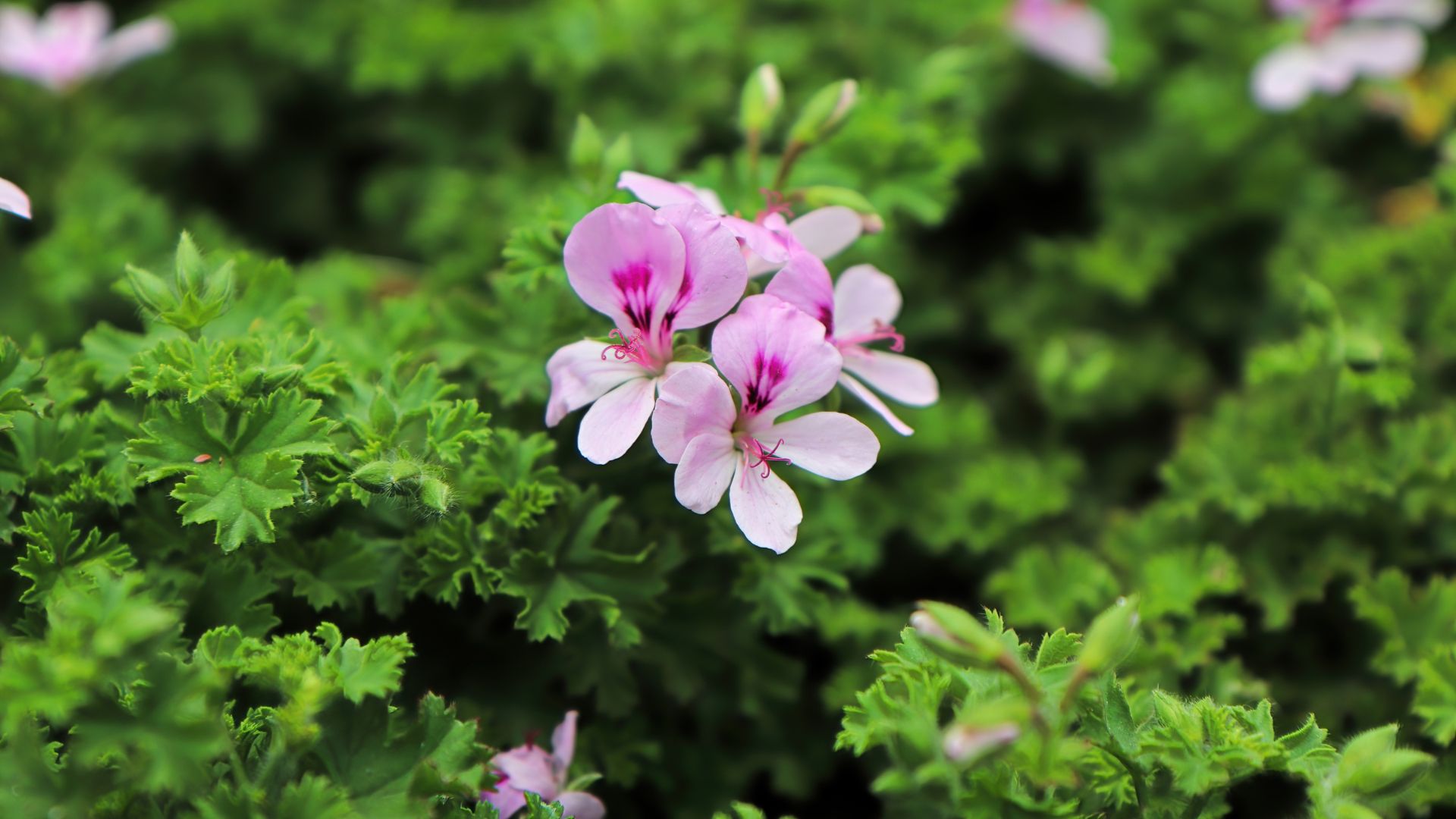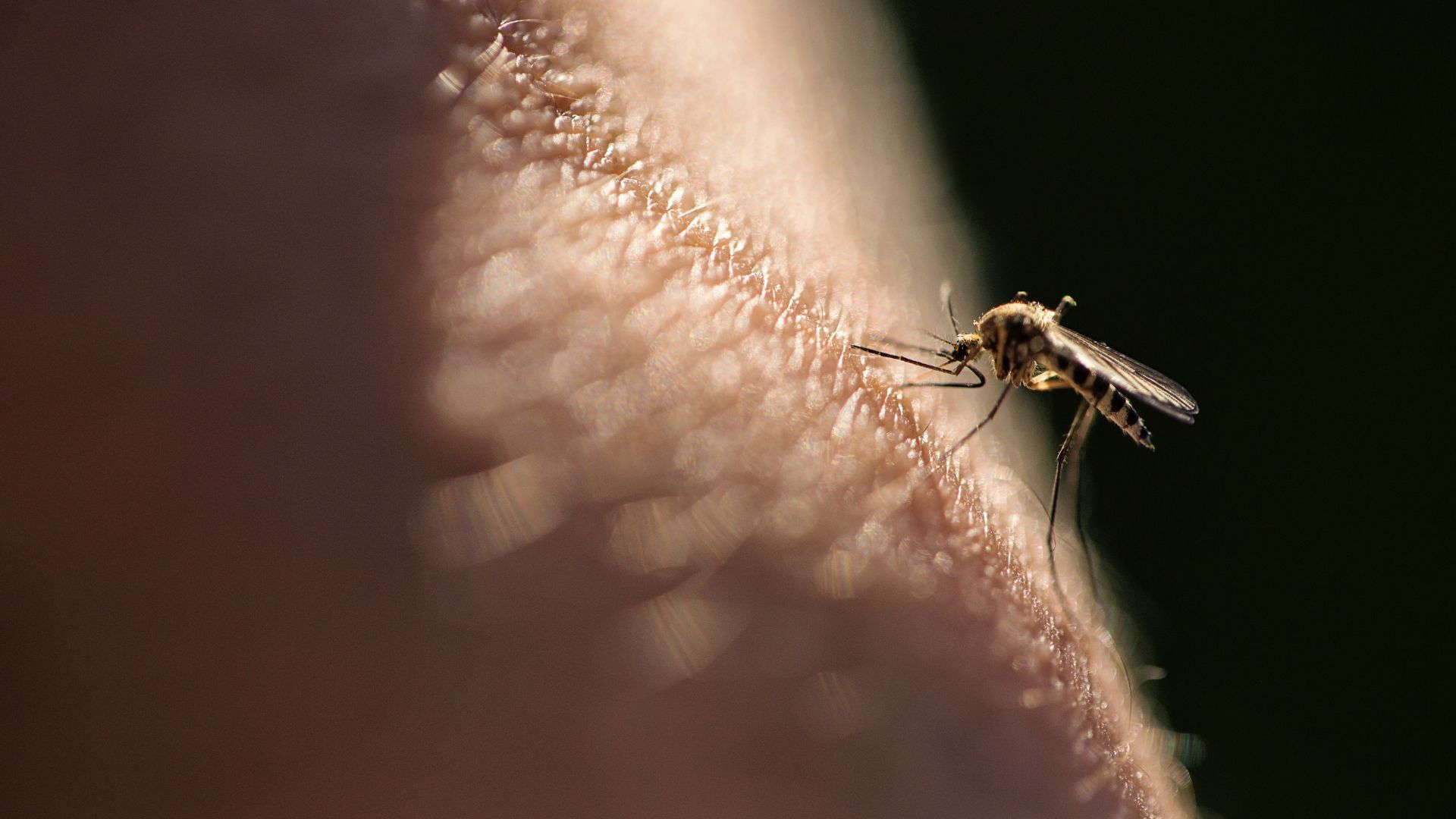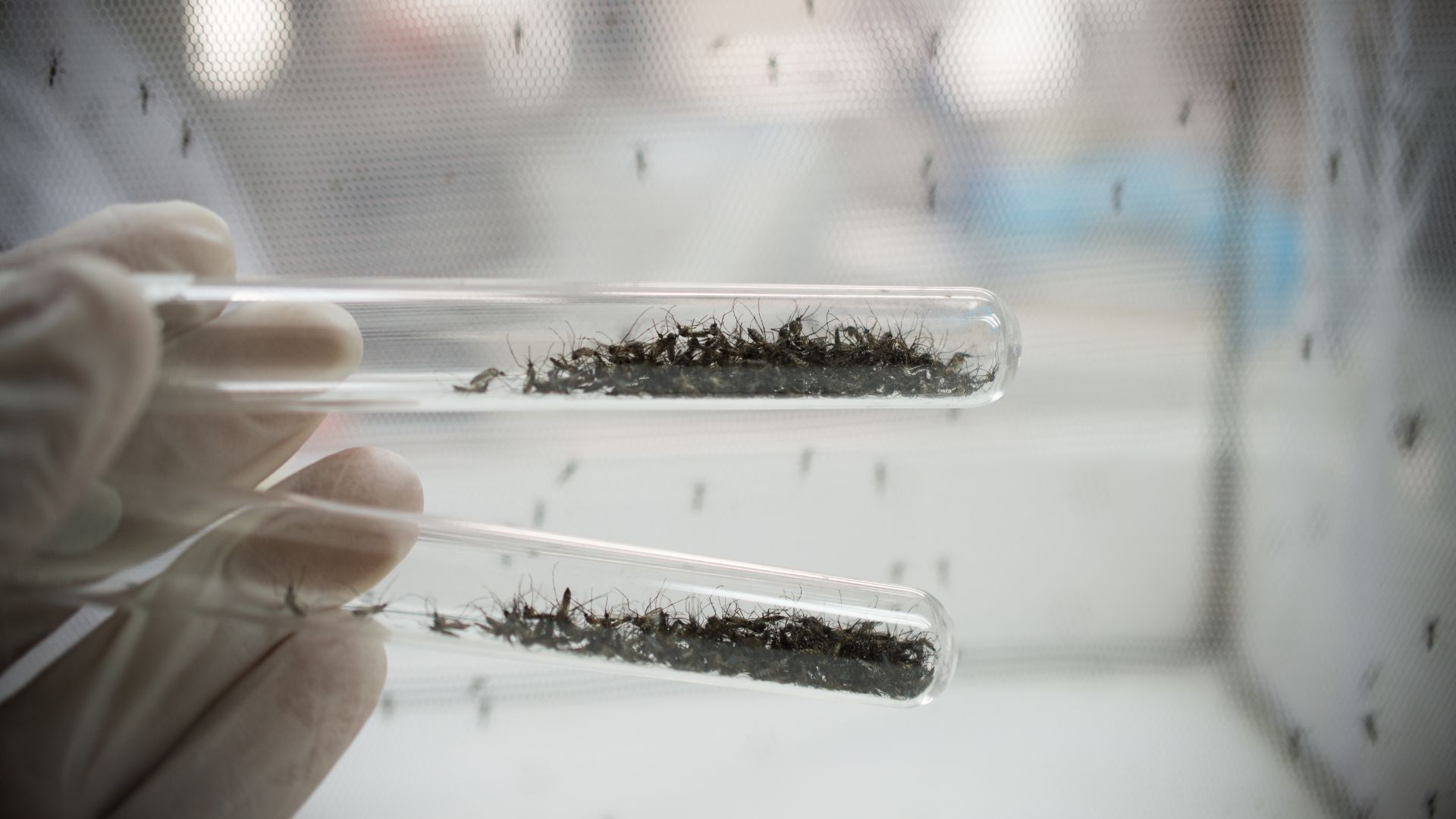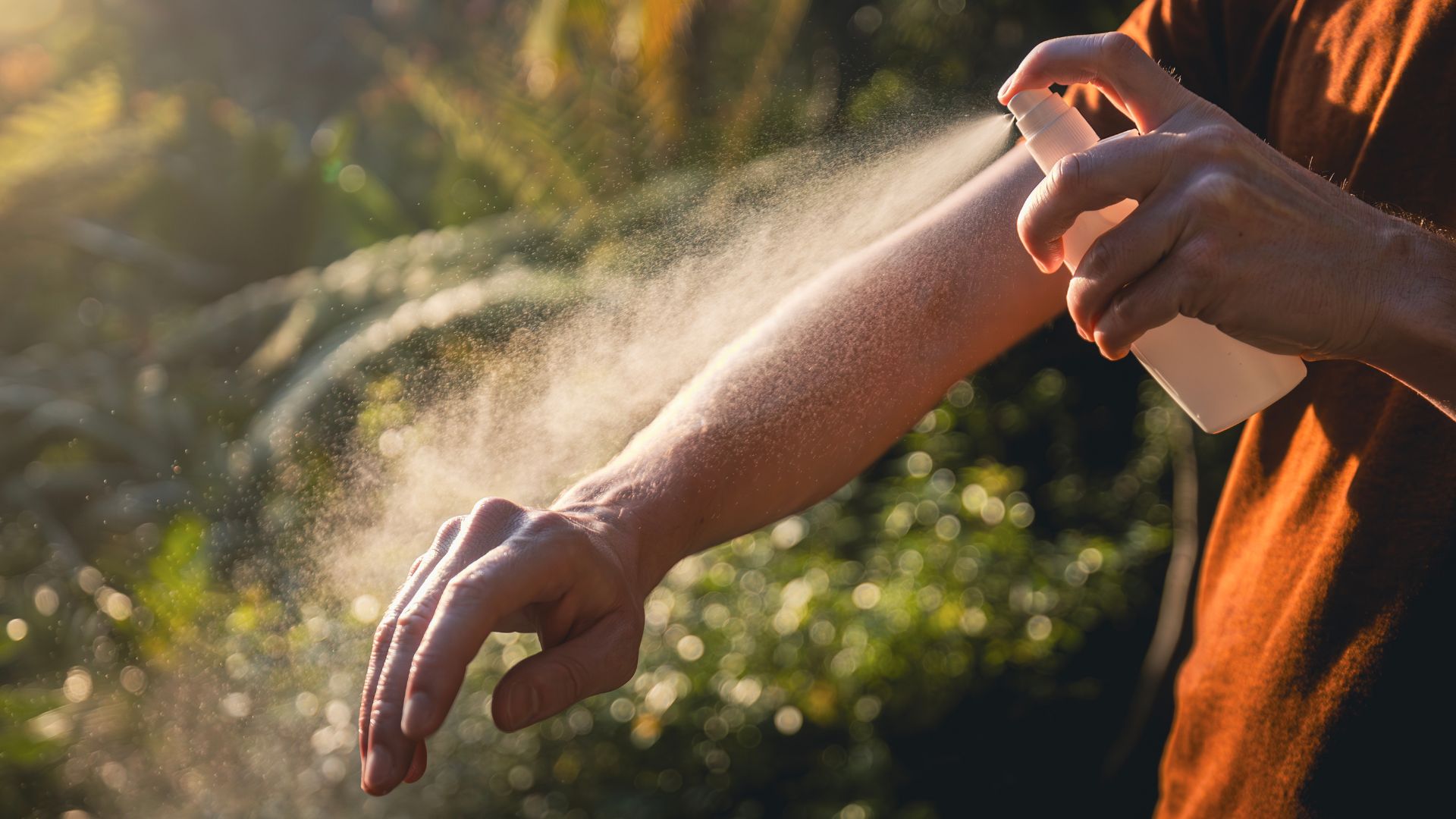Mythbusting: do citrus-based plants really repel mosquitoes?
Citronella, lemon eucalyptus, bog myrtle – is rubbing the oil of these zesty plants on your skin really going to keep biting bugs at bay?

We’ve all been there: sitting around on a balcony as the sun sets, enjoying a beer with friends while someone lights citronella candles to ward off mosquitoes. Rather than break the moment to go and get changed into a long-sleeve top and trousers, you suspend your disbelief, hoping that, despite the fact the candle smoke is being whipped up and off into the atmosphere, the scent barely noticeable, it’s sending the mozzies reeling.
Citronella candles are just one of the myriad plant-based products available to buy that are touted for their citrus properties that are said to repel mosquitoes.
They’re a popular alternative for people who don’t want to spray Deet-based products on their skin. Despite Deet being scientifically proven to stop insects biting, the active ingredient can melt plastic. Deet has been a controversial ingredient though, and, while research hasn't found conclusive evidence that applying it to the skin is harmful to humans, the CDC has advised that people using it in high concentrations have also experienced skin rashes, so if you're looking for an alternative then read on!

Citronella is the most popular alternative when it comes to natural repellents and can be bought in many forms – from sprays to balms, in sun creams and as incense sticks.
It’s a plant that’s native to South Africa – an evergreen shrub with small, rounded, toothed-edged leaves and strong lemon scent.
There’s lemon eucalyptus too, which is also a common offering for outdoor enthusiasts. It’s a strongly lemon-scented shrub with yellowish-green leaves that is native to Australia, available to buy in sprays and roll-ons.
Lemongrass, lemon balm, lemon thyme, bog myrtle – these plants with citrus smells all make an appearance on the store shelves in one form or other. But do they really ward off those irritating insects?
Advnture Newsletter
All the latest inspiration, tips and guides to help you plan your next Advnture!
The problem
Mosquito bites are a nuisance. It’s the female that bites because they want the protein from our blood for sustenance and to produce eggs. It puts its proboscis (the long sucking mouth part) into the skin and injects saliva, which contains chemicals that stops blood from clotting and acts as anesthetic so we don’t feel the bite.
The body reacts and often you’ll get a red, itchy lump. Sometimes these can become infected or cause an allergic reaction.
But worse, mosquitoes carry deadly diseases such as dengue, malaria. While malaria is most prevalent in Africa, Central and South America and Asia, with climate change there’s a potential chance we’ll see these diseases more in the US and the UK in summer months. In fact, mosquitoes killed 48 in Colorado last year by spreading West Nile Virus.
It's hard to study the mosquito – believe it or not, there are more than 3,000 different species in the world, all with different characteristics and feeding patterns.

The myth
There’s myriad sources online explaining how, while we find it pleasant, mosquitoes hate the smell of lemon. If you look for it, you’ll find a source enthusing how mosquitoes find it an irritant, or how the citrus scent masks the smell of humans that mosquitoes are attracted to.
To wade through the online sources filled with anecdotal evidence and information based on hearsay is a time-consuming job, and to find a specialist on the subject who can clear it all up for us is tricky too.
However, there is a British entomologist, Professor James Logan, who's fascinated by insects and on a public mission to clear up disinformation surrounding mosquito repellents. He ran through the science for the BBC, while performing and recording live research.

The evidence
Professor Logan is a professor of medical entomology at The London School of Hygiene & Tropical Medicine and also CEO and founder of Arctech Innovation, an organization that harnesses insect intelligence for novel R&D and efficacy testing.
He explains that although citronella does perform in field tests better than wearing no repellent at all, it isn’t particularly effective.
“Citronella is a plant essential oil with a pleasant citrus smell. It has a little bit of an effect, but it’s not very good and it certainly doesn’t last very long,” he told the BBC. "Scientific published research supports the fact that Deet is very, very effective [...] Citronella is not very effective."
When it comes to lighting candles sticks around camp, Logan says they’re not going to be a solution either:
“We tend to use candles outdoors, and for anything to be effective it has to build up in the air. If you’re outdoors it will get carried away in the wind. Citronella candles might look nice and smell nice, but they won’t repel mosquitoes.”

The exception
So while citronella has a very small amount of efficacy, oils from other citrus-based plants aren't really going to repel mosquitoes at all, Logan says.
There is once exception however, and that’s lemon eucalyptus. While rubbing the plant on your skin won’t have an effect, there is a chemical found in the essential oil called PMD, and repellents that use a high concentration of this compound do actually repel mosquitoes.
Considered safe for children three years and older, it’s registered with the Environmental Protection Agency (EPA) and recommended by the Center for Disease Control and Prevention (CDC) as effective against disease-carrying mosquitoes.
“PMD is a really good repellent," says Logan. "It can be a good alternative if you don’t like to use Deet as a natural alternative. Some of the formulations might not last as long, but as long as you follow the instructions on the bottle you can use PMD.”

Mosquito management
Aside from Deet, there are two other synthetic ingredients used in mosquito repellents that are scientifically proven to work: IR3535 and Picharadon. These are the ingredients to look for, or of course PMD, for your next expedition.
Other mosquito management techniques include:
- Wear light-coloured, loose clothing
- Cover up as much skin as possible
- Keep away from standing water
- Avoid peak mosquito hours (dawn and dusk)
Find out more about keeping bugs at bay in our article, How to avoid mosquito bites.

Charlie is a freelance writer and editor with a passion for hiking, biking, wild swimming and active travel. She recently moved from Bristol to South Wales and now refuses to leave her front door without one of the following: lightweight hikers, wetsuit, mountain bike, tent. Having bought a fixer-upper home that backs on to protected woodland, her love of nature and wildlife has intensified and the dark skies have kickstarted a new fondness for stargazing.
